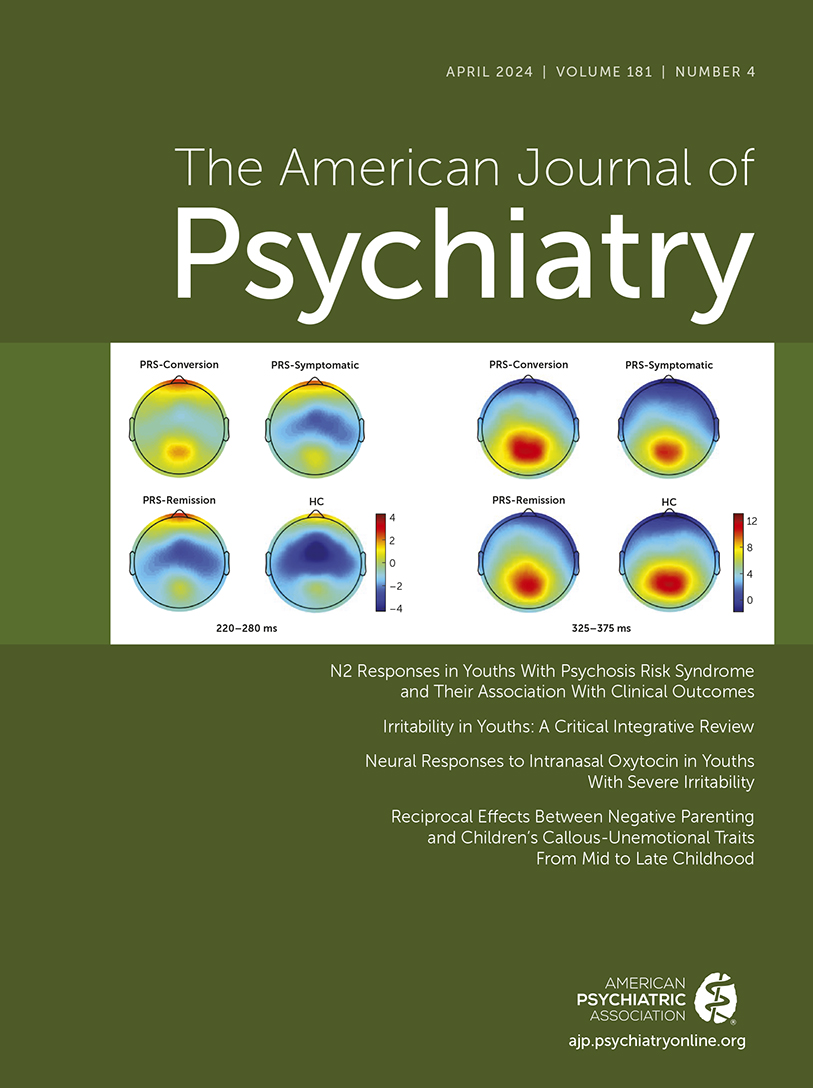Reciprocal Effects Between Negative Parenting and Children’s Callous-Unemotional Traits From Mid to Late Childhood
Abstract
Objective:
The role of negative parenting in the development of callous-unemotional (CU) traits remains unclear. Both negative parenting and CU traits are influenced by genetic and environmental factors. The authors used genetically informed longitudinal cross-lagged models to examine the extent to which reciprocal effects between negative parenting and children’s CU traits in mid-to-late childhood are genetic versus environmental in origin.
Methods:
In 9,260 twin pairs from the Twins Early Development Study, the authors estimated cross-lagged effects between negative parenting (discipline and feelings) and children’s CU traits in mid (ages 7–9) and late (ages 9–12) childhood.
Results:
CU traits were strongly heritable and stable. Stability was explained largely by genetic factors. The influence of negative parenting on the development of CU traits was small and driven mostly by genetic and shared environmental factors. In mid childhood, the influence of children’s CU traits on subsequent negative parenting (i.e., evoked by children’s CU traits) was also small and mostly genetic in origin. In late childhood, CU traits showed no effects on negative parental discipline and small effects on negative parental feelings, which reflected mostly shared environmental factors.
Conclusions:
In mid-to-late childhood, genetic factors strongly influenced the development of CU traits, whereas environmental effects of negative parenting were small. Negative parenting was also relatively unaffected by CU traits. The small reciprocal effects originated mostly from genetic and shared environmental factors. Therefore, repeated intensive interventions addressing multiple risk factors rather than negative parenting alone may be best positioned to support families of children with CU traits across development.
Access content
To read the fulltext, please use one of the options below to sign in or purchase access.- Personal login
- Institutional Login
- Sign in via OpenAthens
- Register for access
-
Please login/register if you wish to pair your device and check access availability.
Not a subscriber?
PsychiatryOnline subscription options offer access to the DSM-5 library, books, journals, CME, and patient resources. This all-in-one virtual library provides psychiatrists and mental health professionals with key resources for diagnosis, treatment, research, and professional development.
Need more help? PsychiatryOnline Customer Service may be reached by emailing [email protected] or by calling 800-368-5777 (in the U.S.) or 703-907-7322 (outside the U.S.).



